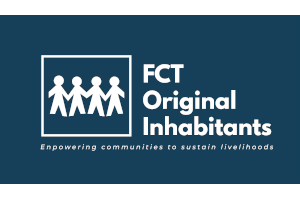Most popular questions
Abuja, the Federal Capital Territory (FCT) was carved out of eleven existing districts: six from Niger State, four from Plateau, (now Nasarawa) and one from part of old Kwara (now Kogi)
The Gbagyi people which are the most populous of the OIs are peaceful, agriculturalistics, artistic, Nupoid-speaking people who live in the geopolitical zone of the North-Central Nigeria. They are mostly found in Niger state, Kaduna state and the Federal Capital Territory. They can also be found in central NigeRIna states of Nasarawa and Kogi (then old Plateau and old Kwara states).
Today, a Radio station has been situated on the Hills but the Original Inhabitants have on several occasion protested the naming of the Hill as Apo Hill, explaining that the name is Pyeri-Pe Hill, which means “That Hill” in the local Gbagyi Language.
This particular Hill, till date, is where we have the community worshipping centre. It is still being worshipped by our Elders. Because in the history of Garki, we have had 17 Kings, the current King is the 18th King. And out of the 17 Kings, 16 are buried on top of the Hills.
Gbagyi people traditionally carry their personal belongings and luggages on their backs and shoulders. An indigene said this is because the Gbagyi people consider the head to be a sacred part of the body.
In several countries, especially in developing countries, national governments had failed the people and communities whose lands were taken and used as national capitals. In Nigeria, some of the settlements and communities merged as Abuja had their inhabitants moved out of their ancestral homes and family lands.
Forty-six years after, a number of them and/or their offspring have not been compensated or resettled as promised by the then Murtala Mohammed regime that announced the movement in 1976. Successive regimes have built infrastructure across the capital, especially in in the municipality. This has not impacted the original Inhabitants as expected, as they have continued to push for social, political ad constitutional changes to improve their lot in the Nigerian federation.
The Abuja OIs traditionally made a living by farming but the displacement has taken them away from their farmland.
The Original Abuja residents were relocated to make room for the building of Nigeria’s new capital. Many of these people are angry at the way the only home they have ever known has been portrayed as a “no man’s land”.
Based on the 1999 Constitution of the Federal Republic of Nigeria (CFRN), [as amended]; while each state of the federation is expected to produce at least a minister in the Federal Cabinet, FCT is not included being a territory of the Federal Government of Nigeria.
